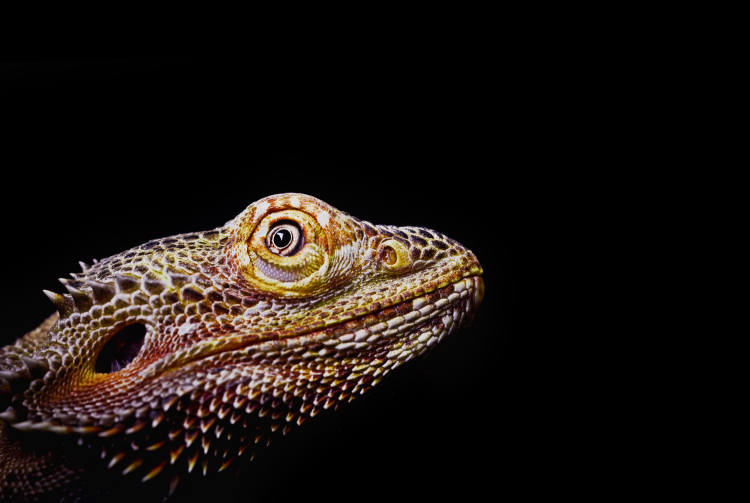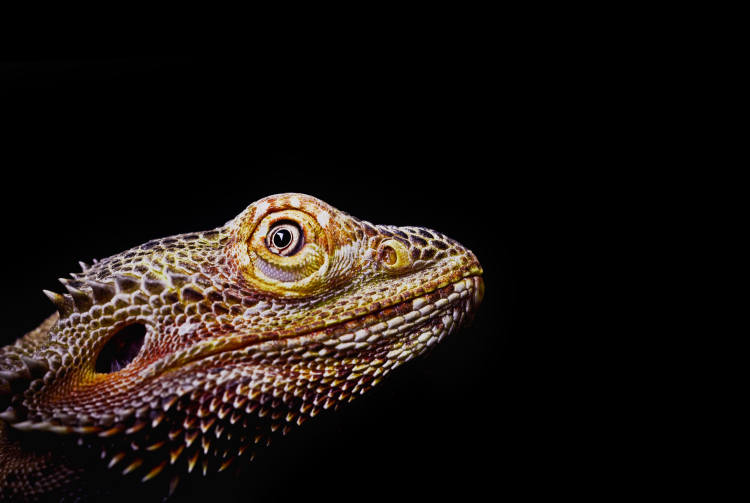
Bearded dragons which are incubated in colder environments are better at solving cognitive tasks as adults than incubated in warmer temperatures, according to new research published today.
Scientists tested the social learning abilities of bearded dragons which had been incubated in either an average of 30°C or 27°C and found that those from the colder incubation environment picked up new skills faster than their hotter counterparts.
To investigate how well they would learn from other lizards, researchers at the University of Lincoln, UK, had the bearded dragons watch a video of an unfamiliar female opening a sliding door to receive food behind the door. After watching the video, those lizards were given access to the sliding door and then had five minutes to open it themselves and access a food reward.
The findings, published in the Royal Society’s journal Open Science, revealed that over the course of ten trials the group which from the colder incubation environment completed the task significantly quicker than those from hotter incubators.
All of the animals were over a year old at the time of testing, suggesting that environmental temperature change is likely to have profound and long-lasting impacts on animal behaviour.
Dr Anna Wilkinson, from the University of Lincoln’s School of Life Sciences, said: “Environmental change is one of the key issues affecting habitats worldwide, creating challenges for animals living there.
“One of the first responses an animal can make to a changing environment is changing its behaviour. Cognitive abilities are likely to be critical to how they adapt because they influence how an animal perceives, stores and uses information from the surrounding environment.
“Our findings reveal that the egg incubation environment impacts upon social learning in adult bearded dragons as the cold-incubated animals in our experiment performed the task significantly faster than those that were incubated at a warmer temperature.
“One intriguing idea suggests that incubation environment may ‘select’ for traits that are adaptive to the specific environment into which the animal being born – for example, a cooler environment may produce animals that are better adapted to survival in that temperature profile and vice versa.”
Harry Siviter, from Royal Holloway, University of London, was part of the research team. He added: “This flexibly of cognitive ability could aid reptiles in adapting to new changing environments and could offer a potential buffer in the face of human-induced environmental change.
“However, if conditions change too rapidly then reptiles might struggle to adapt quickly enough to their changing environments, which could negativity influence their survival.”
###
The full paper can be found online here: http://rsos.royalsocietypublishing.org/content/4/11/170742
Media Contact
Cerri Evans
[email protected]
44-152-288-6165
@unilincoln
http://www.lincoln.ac.uk/home/
Related Journal Article
http://dx.doi.org/10.1098/rsos.170742




